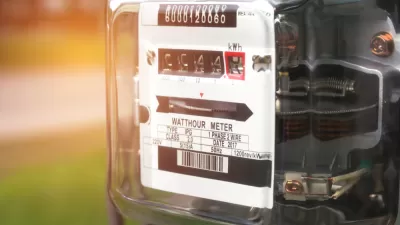Missouri's inability to pass transportation funding legislation or ballot measures has come home to roost in the growing number of bridges classified in "critical condition"—just one or two steps from being closed, according to MoDOT.
While the media has been gloating about the lowest gas prices for a Labor Day weekend in 11 years, the Missouri Department of Transportation (MoDOT) reminds us that there may be consequences to cheap gas, particularly for states that have failed to increase gas taxes or provide other means of critical infrastructure funding.
MoDOT "has long been warning that state transportation revenues are not enough for MoDOT to keep existing infrastructure in current condition," writes AASHTO Journal. The number of state bridges "in critical need of attention has risen to 641 this summer from 591 a year ago. Missouri has 10,376 bridges on state highways."
While "still safe to drive over, MoDOT said such "critical condition bridges are the state's worst, and with continued deterioration are just one or two steps from being closed."
State Bridge Engineer Dennis Heckman says that trend is likely to continue, since 50 to 100 more fall into that category every year. "To get ahead of the game, we should be replacing more than 100 bridges per year," he said. "Instead, our funding levels are only allowing us to replace about 30. In 10 years, we'll have about 1,500 bridges on the critical condition list."
"MoDOT estimates it would cost about $820 million to repair or replace the 641 critical-condition bridges," writes Leah Thorsen for the St. Louis Post-Dispatch. "(T)he cash-strapped state agency is still paying off debt it assumed for a round of bridge work a few years ago and says new funding sources must be found to make the necessary repairs and replacement."
They put those funds to good work. According to a June 4, 2014 article in Governing (posted here), Missouri was one of "a handful of states (that) accounted for most of the national improvement in reducing structurally deficient bridges. Oklahoma, Missouri, Texas, Mississippi, Pennsylvania and Ohio posted the biggest improvements in the last six years and together were responsible for 57 percent of the decrease in structurally deficient bridges nationwide." An accompanying chart shows the number in Missouri decreased by 1,119.
The state has struggled to finding new infrastructure funding. Voters resoundingly rejected a sales tax measure last year. The legislature attempted to pass a six-cents gas tax increase that ultimately failed. Its 17.3 cents gas tax [PDF], not increased in 18 years, is the fifth lowest in the nation.
The Show Me State is not alone, although it may rank at the top for bridges in critical condition. After completing its inspection of the state's 230 structurally deficient bridges, the Rhode Island Department of Transportation announced that it found 28 in critical condition, reports The Associated Press. The state has the highest percentage of structurally deficient bridges.
FULL STORY: Missouri Agency Says Number of “Critical Condition” Bridges Increasing

Maui's Vacation Rental Debate Turns Ugly
Verbal attacks, misinformation campaigns and fistfights plague a high-stakes debate to convert thousands of vacation rentals into long-term housing.

Planetizen Federal Action Tracker
A weekly monitor of how Trump’s orders and actions are impacting planners and planning in America.

San Francisco Suspends Traffic Calming Amidst Record Deaths
Citing “a challenging fiscal landscape,” the city will cease the program on the heels of 42 traffic deaths, including 24 pedestrians.

Defunct Pittsburgh Power Plant to Become Residential Tower
A decommissioned steam heat plant will be redeveloped into almost 100 affordable housing units.

Trump Prompts Restructuring of Transportation Research Board in “Unprecedented Overreach”
The TRB has eliminated more than half of its committees including those focused on climate, equity, and cities.

Amtrak Rolls Out New Orleans to Alabama “Mardi Gras” Train
The new service will operate morning and evening departures between Mobile and New Orleans.
Urban Design for Planners 1: Software Tools
This six-course series explores essential urban design concepts using open source software and equips planners with the tools they need to participate fully in the urban design process.
Planning for Universal Design
Learn the tools for implementing Universal Design in planning regulations.
Heyer Gruel & Associates PA
JM Goldson LLC
Custer County Colorado
City of Camden Redevelopment Agency
City of Astoria
Transportation Research & Education Center (TREC) at Portland State University
Jefferson Parish Government
Camden Redevelopment Agency
City of Claremont



























